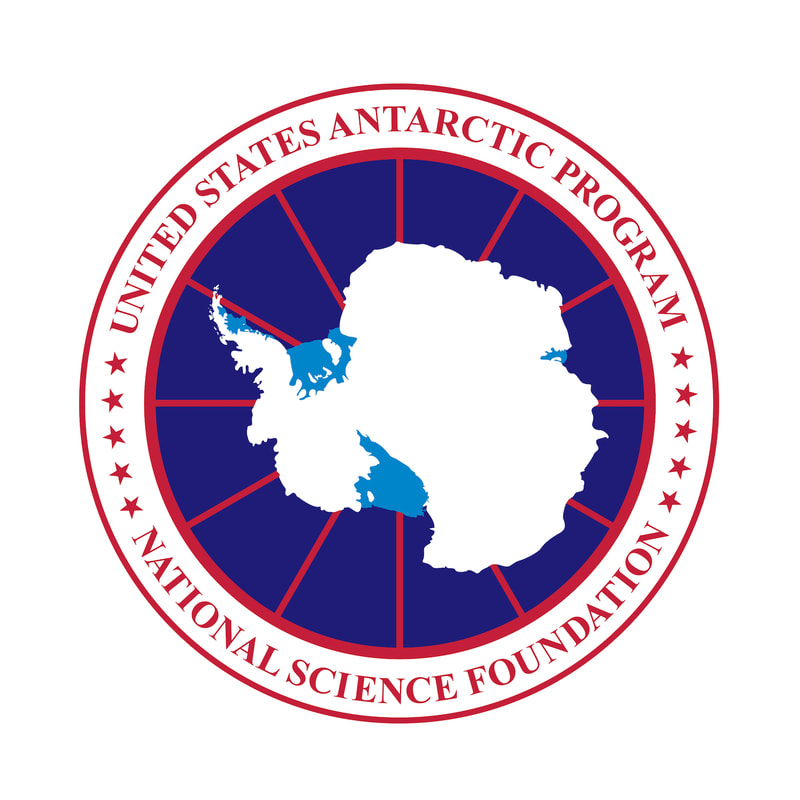|
The cute "tuxedo" penguins, the Adélies, were the only penguin species in the Palmer Station area in the early 1970s. Large areas of Antarctica, though far away, has unfortunately also suffered from rapid warming. Adélies are an ice-dependent species, but sea ice is not as thick anymore nor does it last as long as it used to. This means that other species of penguins that are not dependent on the ice are able to get established. It was the early 1990s when a different species of penguins, one from a warmer climate, were first sighted: the gentoo penguins. Now the gentoos have increased in numbers dramatically, while the populations of Adélies have decreased by 90% or more. In fact, gentoo penguins now outnumber the Adelies - a staggering shift in penguin species in the Palmer Station area! Adélies truly are the harbingers of change.
Researchers, such as Dr. Megan Cimino and her team, Darren and Megan Roberts, study where penguins hunt for food, the types of food they eat, how many of the chicks survive to the fledgling stage (i.e., "teenagers"), and much more. Much of the work is part of a study that has been ongoing since the 1970s! Though there are lots of data, new tools opens up ways to answer new research questions (e.g., use of robots to find krill - the main source of food for penguins). Very cool work (pun intended!). Photos feature the "teenage" penguins, some still losing their chick down coat in interesting patterns (e.g., see "crop top" penguin. :)
0 Comments
Leave a Reply. |
About meGrowing up watching nature documentaries, I find myself now immersed in nature's splendor. As an ecologist I study how ecosystems function. Here I share with you my love of doing research in Antarctica - a place of sheer beauty Older posts
March 2023
|


